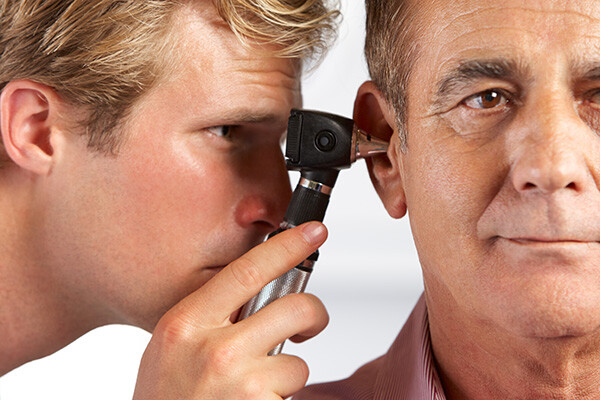If you’ve never had a hearing test before, or it’s been a few years since you saw an audiologist, you may be wondering what’s in store for you. A hearing test is an assessment, which is used to determine how well you can hear. There’s no pain involved, and there’s nothing to worry about. Your audiologist will talk you through the process, and they’ll also be able to answer any questions you have before or during the test. If you’ve got a hearing assessment coming up, here are 4 things to expect at your hearing test appointment.
1. Questions about your hearing and your general health
In many cases, your audiologist will start the test by asking you a few questions about your hearing and whether you’ve experienced any difficulties or you have problems with hearing certain sounds or distinguishing different noises in certain environments. Your audiologist may also ask you some questions about your general health and your medical history. These questions are designed to provide your audiologist with information, which may be beneficial when making a diagnosis or considering treatment options.
2. Physical examination
Before your audiologist conducts any tests that involve sound, they will look at the ears in detail using an instrument called an otoscope. This part of the test can help to flag up any abnormalities or issues, which may be affecting your hearing. If there’s a build-up of wax or signs of inflammation, for example, these could be potential causes of hearing loss.
3. Your hearing test
The next stage is the most important part of the appointment. Your audiologist will conduct a series of tests, which are designed to measure how well you can hear. You may be asked to sit in a soundproof room for a period of time or to use headphones. When you hear sounds, you’ll be asked to raise your hand or use a similar signal to show that you can hear that specific noise. A range of sounds and different tones will be played to you to check how well you cope with pitch, and you may also be asked to take a speech test, which involves repeating sentences back to your audiologist. The pressure inside the ears may also be measured to gauge the flexibility of the eardrum. None of these tests are painful, and they only take a few minutes.
4. Finding out the results
After you’ve completed your hearing tests, your audiologist will discuss the findings with you. It may be necessary to conduct further tests, but at this stage, your audiologist should have a good idea of how well you can hear and whether you need additional help, for example, from hearing aids. If you do have significant hearing loss, a follow-up session can be organized to discuss treatment options.
If you’ve got a hearing test approaching, there’s nothing to worry about. This is a simple assessment, which is used to provide audiologists with detailed information about your hearing abilities. If there are issues, it’s always best to intervene at an early stage to improve your hearing and try and reduce the risk of further deterioration.


